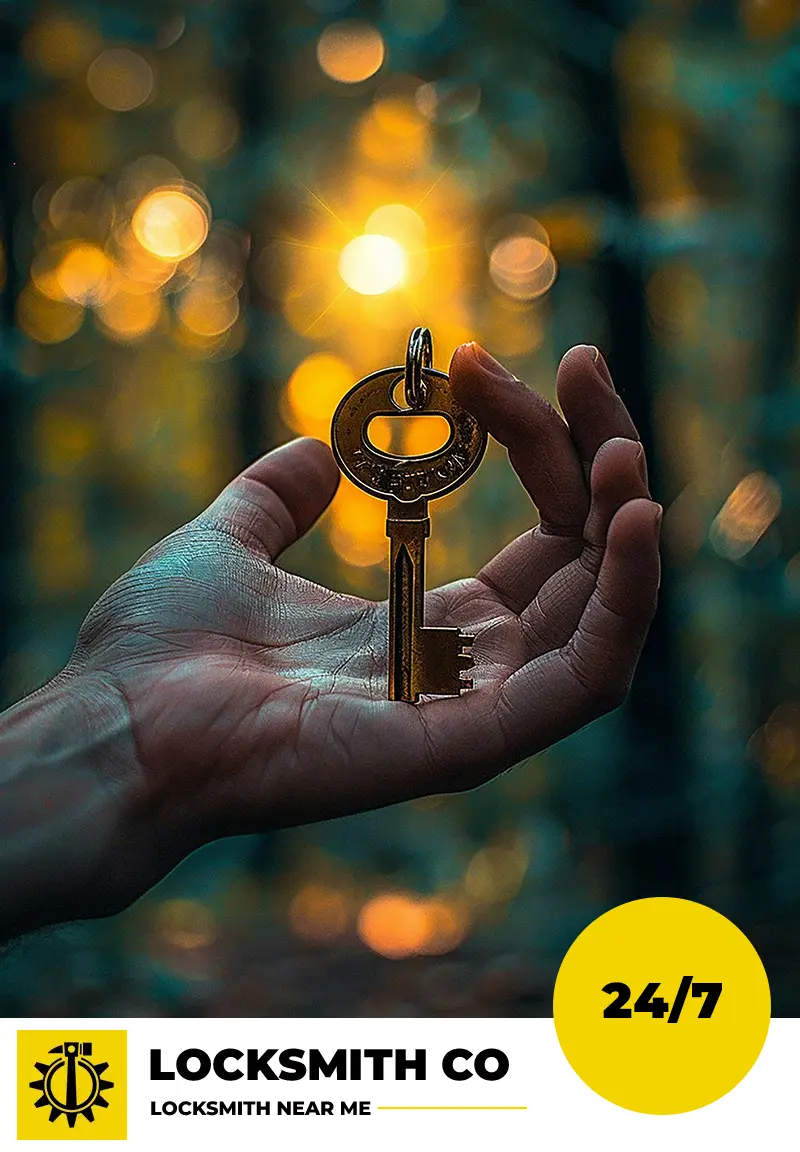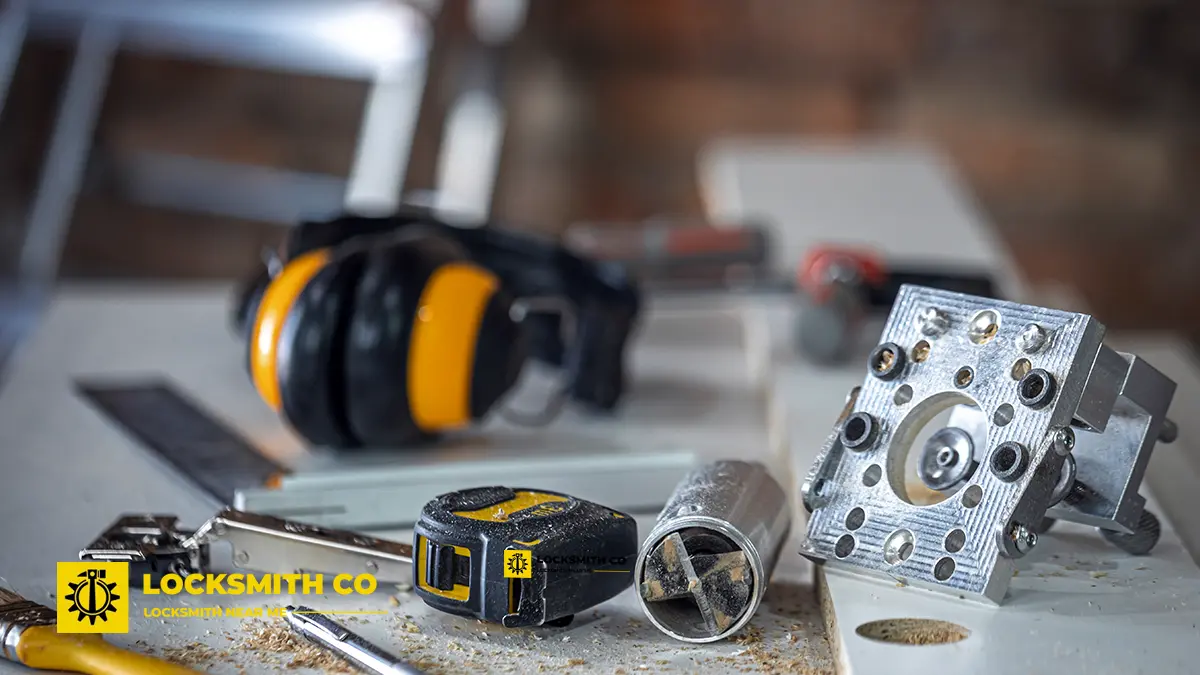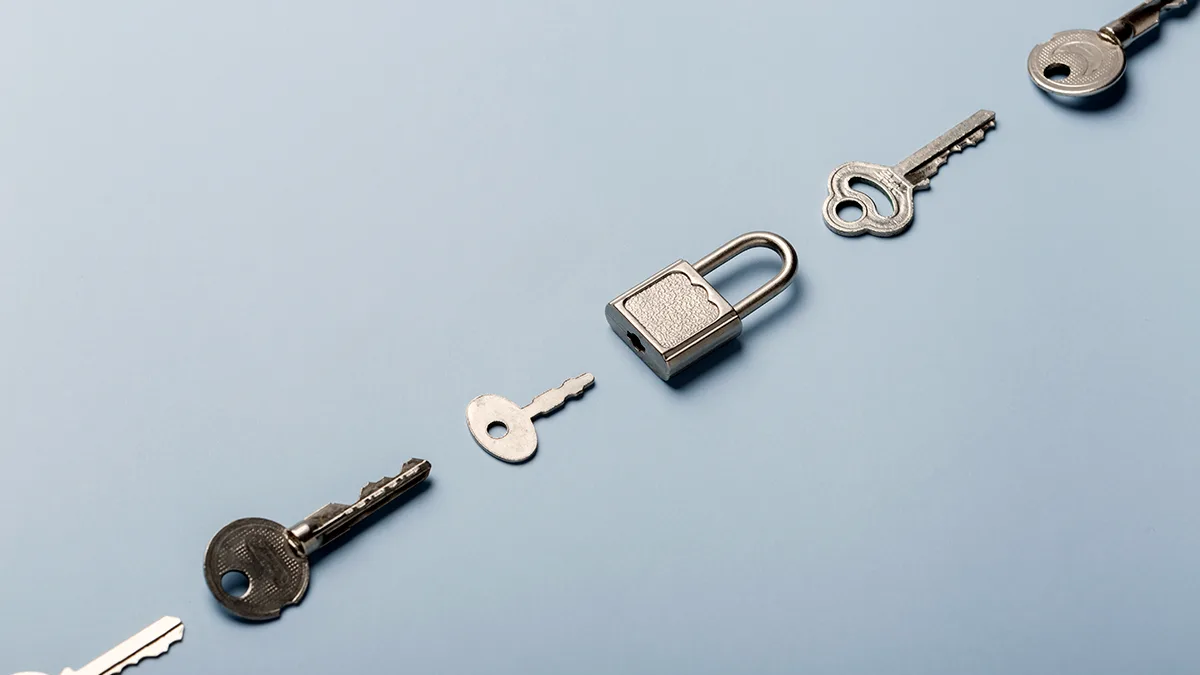The Hidden Costs of DIY Lock Repairs and How to Avoid Them. In a bustling city…
Types of Keys Every Locksmith Uses: Unlocking the Secrets
Types of keys every locksmith uses: Locksmiths play a crucial role in ensuring the security and accessibility of our homes and businesses, employing a wide array of keys that cater to various locking mechanisms.
Understanding the different types of keys a locksmith uses not only demystifies the intricate work they do but also enhances the confidence and trust you place in their expertise.
Unlocking the Secrets: Types of Keys Every Locksmith Uses
From traditional skeleton keys to modern electronic keys, each type serves a unique purpose and requires specialised knowledge to handle effectively.
In this guide, we will delve into the essential types of keys every locksmith must be proficient with, shedding light on the tools of the trade that keep your property secure and accessible.
Traditional Key Types
Lever Locks
 Lever locks are among the oldest and most reliable types of locking mechanisms, commonly used in residential and commercial properties across the UK.
Lever locks are among the oldest and most reliable types of locking mechanisms, commonly used in residential and commercial properties across the UK.
These locks operate using a set of levers that must be lifted to a specific height by the key to allow the bolt to move and unlock the door.
The complexity of lever locks can vary, typically ranging from three to seven levers, with higher lever counts offering increased security.
A locksmith must be adept at creating and duplicating keys for lever locks, as well as maintaining and repairing these systems.
Lever locks require precision in key cutting, ensuring that each notch on the key aligns perfectly with the corresponding lever in the lock.
Their durability and robustness make them a popular choice for securing properties, providing a high level of security that’s difficult to bypass without the correct key.
Types of keys every locksmith uses: Mortice Keys
Types of keys every locksmith uses: Mortice keys are specifically designed for mortice locks, which are installed within the door itself rather than on the surface.
These keys are easily recognisable by their long, flat shaft with a distinctive bit at the end, which interacts with the lock mechanism inside the door.
Mortice locks are highly secure and are commonly found on external doors of residential properties and high-security commercial premises.
Locksmiths must possess a thorough understanding of the intricate workings of mortice locks to effectively cut and duplicate mortice keys.
These locks often feature a lever mechanism, similar to lever locks, requiring the key to lift the levers to the correct height to enable unlocking.
Mortice keys must be precisely cut to ensure they fit and function correctly within the lock.
The security provided by mortice locks makes them a preferred choice for those seeking enhanced protection for their properties.
Rim Locks
Rim locks are surface-mounted locks typically used on interior doors or gates.
These locks are characterised by their ease of installation, as they are attached to the door’s surface rather than embedded within the door itself.
The keys for rim locks are usually flat with a notched blade, designed to fit into the lock’s mechanism to engage the bolt.
Locksmiths often encounter rim locks in older properties and must be skilled in both their installation and maintenance.
Creating keys for rim locks involves careful attention to the alignment of the notches to ensure smooth operation.
Despite their relatively simple design, rim locks provide a moderate level of security suitable for internal doors or low-risk external gates.
Their historical significance and straightforward functionality make them a popular choice for restoration projects and period properties, where maintaining the original aesthetic is crucial.
Modern Key Solutions
Transponder Keys
Transponder keys, often used in modern vehicles, incorporate an electronic chip that communicates with the vehicle’s ignition system.
This technology significantly enhances security, as the vehicle will only start if it recognises the correct transponder signal.
Transponder keys have become standard in the automotive industry, reducing the risk of car theft through hot-wiring or key duplication.
Types of keys every locksmith uses: A locksmith specialising in automotive services must be equipped to program and duplicate transponder keys.
This process involves both cutting the physical key and programming the transponder chip to match the vehicle’s unique code.
Advanced diagnostic tools are necessary to read and replicate the transponder signal accurately.
The complexity and precision required for working with transponder keys underscore the importance of choosing a skilled and experienced locksmith.
For vehicle owners, transponder keys offer peace of mind, knowing their vehicle is protected by advanced security technology.
Types of keys every locksmith uses: Smart Keys
Smart keys represent the cutting edge of locking technology, offering keyless entry and enhanced security features for modern vehicles and properties.
These keys utilise wireless communication, typically through RFID (Radio Frequency Identification) or Bluetooth, to interact with the locking system.
When the smart key is in close proximity, the system automatically unlocks, allowing for seamless and convenient access.
Locksmiths must stay abreast of the latest technological advancements to effectively service and program smart keys.
This involves not only understanding the electronic components but also having access to specialised equipment for programming and troubleshooting.
Smart keys can be customised with additional security features, such as encryption and rolling codes, which change with each use to prevent unauthorised access.
For users, smart keys provide a blend of security and convenience, eliminating the need to physically insert a key while ensuring robust protection against theft.
Their growing popularity underscores the ongoing evolution of security solutions in the digital age.
Dimple Keys
Dimple keys are a modern twist on traditional keys, featuring a flat blade with various pin-sized dimples on its surface.
These dimples correspond to pins within the lock, which must align perfectly to unlock the mechanism.
Dimple locks are renowned for their higher security levels and resistance to picking compared to standard pin-tumbler locks.
Types of keys every locksmith uses: A locksmith working with dimple keys must possess precision and expertise in cutting and duplicating these keys.
Specialised machines are often required to create the exact dimple patterns necessary for the key to function correctly.
The unique design of dimple keys offers added security, making them a popular choice for commercial buildings and high-security residential properties.
For property owners, dimple keys provide a reassuring level of security, with the knowledge that their locks are more resistant to tampering.
Their sophisticated design and enhanced security features make them an excellent choice for those looking to bolster the protection of their premises.




Comments (0)